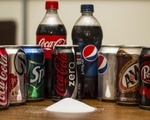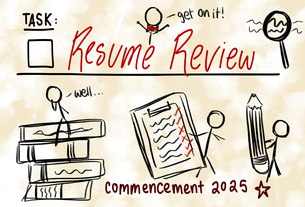Science News
Exposure to Stimuli May Slow Alzheimer's Disease
Prolonged exposure to a stimulating environment may help in delaying one of the factors associated with the onset and progression of Alzheimer’s disease, according to a new study by researchers at Harvard-affiliated Brigham and Women’s Hospital.
Study: Wind Farm Generative Capacity May Be Limited
Wind power and wind farms may not be capable of producing as much energy as previously believed, according to a paper co-authored by Harvard scientist David W. Keith.
Study: Extraterrestrial Life May Be Detectable Near White Dwarfs
If extraterrestrial life exists near dying stars, there may be a way to detect it within the next decade, according to a new theoretical study co-authored by Harvard astronomy professor Abraham “Avi” Loeb.
HMS Researchers Find Genetic Links to Psychiatric Disorders
In a finding that that could improve the effectiveness of treatments, Harvard Medical School researchers have found that certain genes are associated with five psychiatric disorders, including schizophrenia and autism.
Kennedy School Professor Suggests Cutting Fossil Fuel Subsidies
As Congressional lawmakers attempt to hammer out a compromise on federal spending before automatic budget cuts kick in on Friday, Harvard Kennedy School professor Joseph E. Aldy is proposing his own way of reducing the federal budget deficit—eliminating subsidies to the fossil fuel industry.
Student and Faculty Researchers Reflect on Trip to Hindu Festival
Last month, more than 50 Harvard researchers traveled to Allahabad, India, to study the Kumbh Mela, a two-month-long religious affair that attracts tens of millions of visitors to a rotating location in India every three years.
School of Public Health Researchers Petition for FDA Action on Soda
Several researchers at the Harvard School of Public Health have penned their names to a petition that calls for the Food and Drug Administration to evaluate and act upon the health effects of climbing sugar levels in soda and sweetened beverages.
Researchers Measure Global Carbon Dioxide Levels
Using data generated by planes that traveled between the North and South Poles, Harvard researchers generated the first set of highly detailed measurements of greenhouse gas levels across the globe. This comprehensive data set is now available to the public.
Soft Robots Jump Higher, React Faster
New advances in soft-robotics allow these more flexible robots to react faster than ever before.
Research Begins to Explore What Makes EDAR Gene Advantageous
According to a recent study by a team of Harvard researchers from across the University, specialists in thermoregulation, dermatologists, and hair experts have one thing in common: the EDAR gene.
Microbes Pave Way for "Personalized Medicine"
Bauer Fellow Peter J. Turnbaugh and coworkers published work last month that could pave the way for techniques in “personalized medicine”—treatment which caters to an individuals’ unique genetic makeup.
Harvard Researcher: Google-Generated Ads Show Racial Bias
A Harvard researcher has found that typically African-American names are more likely to be linked to a criminal record in Google-generated advertisements on the online search engine and on the news site Reuters.com, a website to which Google supplies advertisements.









